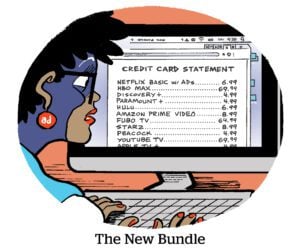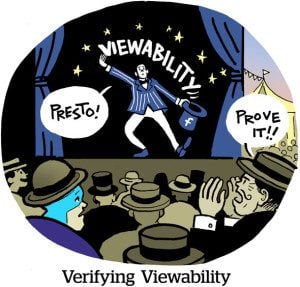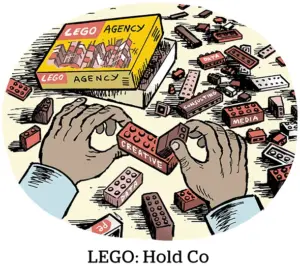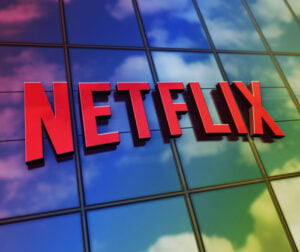Here’s today’s AdExchanger.com news round-up… Want it by email? Sign up here.
C(heap) TV
When Netflix introduced ads in 2022, the CPMs were set at an eye-popping $65.
Some advertisers were willing to pony up that first year for the cachet of being among the first advertisers on the platform.
But then rates dropped from $55 to $45 to $35 – and now Netflix is offering some inventory for between $20 and $30, Adweek reports.
There’s no shame in a $25 CPM, which is still among the most expensive placements on the internet. But for broadcasters it stands as a painful sign that advertisers may no longer think as highly of their media.
Meanwhile, there are deals to be had through the back door, so to speak. A year ago, advertisers were surprised to see their ads serving on tentpole TV, including live Women’s World Cup and NFL games, for CPMs as low as $10. Turns out that Google Ads gets a portion of inventory from TV networks and other channels carried by YouTube TV.
For advertisers, this isn’t a problem. The internet inventory grab-bag should include some gems, not just the odd assortment of remnant inventory nobody wants. But overall there’s been strong downward pressure on CPMs for inventory previously sold at super-high upfront rates or reserved for special premium packages.
No GARM, No Foul
X is suing advertisers for not spending on its platform.
On Monday, CEO Linda Yaccarino announced an antitrust lawsuit against the Global Alliance for Responsible Media (GARM), the World Federation of Advertisers (WFA) and GARM members CVS Health, Mars, Ørsted and Unilever.
The suit cites a report by the House Judiciary Committee accusing GARM of colluding to influence advertisers to boycott Twitter (now X), after it was bought by Elon Musk.
Advertisers fled Twitter en masse after numerous reports of increased hate speech, misinformation and other brand safety violations. Musk himself derided advertising, fired the moderation and trust teams and made a recent change to allow people to post adult content and outright porn.
But the House Judiciary Committee, under Republican chairman Congressman Jim Jordan, suggests GARM led a boycott for reasons unrelated to brands not wanting to advertise on the platform. The committee charges GARM and agency buyers, including GroupM, with colluding to demonetize conservative media outlets like Breitbart and The Daily Wire.
X expects to earn $2 billion from ads this year, according to Axios – less than half of the $4.5 billion in ad revenue it earned in 2021. And, frankly, does anybody trust the numbers?
Home Sweet Home Screen
TV manufacturers have an opportunity to seize the TV ad market from cable and streaming apps, writes Mike Shields in his Next in Media newsletter.
Cable distribution used to be as easy as turning on the TV. Now, most smart TVs default to the manufacturer’s home screen, which is typically laden with featured apps, recommended items and other forms of ads.
To access streaming apps, viewers often have to navigate complicated home screens. When searching for something to watch, 26% of people default to shows promoted on the home screen, while another quarter of viewers use their TV’s universal search, according to Hub Entertainment Research.
TV companies thus gather valuable data about what viewers are watching, what shows are being promoted and whether ads are successful. And because manufacturers access this data through TV server integrations, they’re less reliant on third-party measurement providers.
For now, most smart TV companies seem content to earn ad revenue by pushing brands to their own FAST channels. But, Shields writes, they’ve also laid the groundwork to sell ad inventory on behalf of streaming apps – and to take a bigger cut of cable’s ad revenue.
But Wait, There’s More!
Former US Labor Secretary Robert Reich says Kamala Harris has the potential to do something very funny in response to Google’s antitrust case. [Substack]
Ziff Davis buys CNET from Red Ventures for $100 million. [NYT]
ProRata.ai, a startup that develops subscription-based AI chatbots trained on licensed publisher content, raises $25 million. [Axios]
Fubo has petitioned a US District Court to file an injunction blocking Venu, the proposed joint sports streaming service from Fox, Warner Bros. Discovery and Disney. [Bloomberg]
How Peacock plans to retain new subscribers that signed up for the Olympics. [Ad Age]
Brian Morrissey: The end of mass media might mean the end of mass brands. [The Rebooting]
Where Facebook’s AI slop comes from. [404 Media]
Disney plans to raise the prices on most of its streaming plans this fall. [Deadline]
















